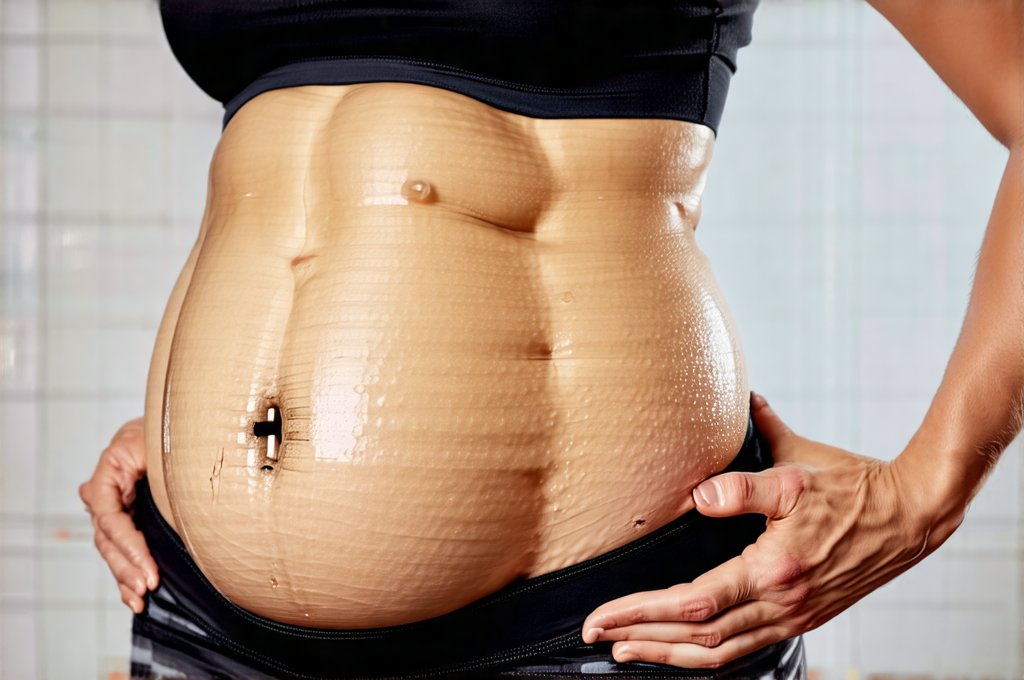Bloating – that uncomfortable feeling of fullness, tightness, and sometimes even pain in your abdomen – is something most people experience at some point. It’s rarely serious, but incredibly disruptive to daily life. Often dismissed as a minor annoyance, persistent bloating can impact everything from clothing fit to social activities, and even self-esteem. Many immediately reach for supplements or over-the-counter remedies hoping for quick relief, but surprisingly effective strategies often lie within simple lifestyle adjustments. Understanding the root causes of your bloating is the first step towards regaining comfort and control. This isn’t about restrictive diets or complicated routines; it’s about making small, sustainable changes that can significantly reduce that uncomfortable puffed-up sensation.
The good news is that for many people, bloating isn’t a sign of underlying disease but rather a consequence of how we eat, breathe, move, and manage stress. While medical conditions can contribute to bloating (and it’s essential to consult a doctor if bloating is severe or persistent), the majority of cases are related to digestive habits and lifestyle factors that are within our power to modify. This article will explore practical, actionable strategies for alleviating bloating without relying on supplements, focusing on methods you can incorporate into your daily routine immediately. It’s about empowerment – taking charge of your digestive wellbeing and finding lasting relief through mindful choices. You might find it helpful to also review can gut health be improved without supplements if you are looking for natural ways to support digestion.
Dietary Adjustments for Bloat Reduction
Diet plays a massive role in bloating, but it’s rarely about eliminating entire food groups. Instead, it’s about understanding how you eat, rather than just what you eat. Rapid eating often leads to swallowing excess air, which contributes significantly to bloating. Similarly, certain foods are more likely to produce gas during digestion for many individuals. Identifying and modifying these aspects of your diet can yield substantial improvements. Consider keeping a food diary; it’s an invaluable tool for pinpointing trigger foods or patterns that exacerbate your symptoms. Be honest with yourself about portion sizes – overeating is a common culprit, regardless of the specific food consumed. If you struggle to make changes, exploring how to eat simple without feeling deprived can offer guidance.
Beyond speed and quantity, certain food characteristics are known to contribute to bloating. Foods high in FODMAPs (Fermentable Oligosaccharides, Disaccharides, Monosaccharides And Polyols) can be problematic for some people. These carbohydrates are poorly absorbed in the small intestine and ferment in the large intestine, producing gas as a byproduct. Common FODMAP-rich foods include onions, garlic, apples, pears, wheat, beans, and dairy (for those lactose intolerant). It’s not necessarily about cutting these foods out entirely; experimenting with smaller portions or finding low-FODMAP alternatives can make a difference.
A gradual introduction of more fiber is also key. While fiber is essential for digestive health, a sudden increase can actually cause bloating initially. Focus on incorporating fiber slowly and drinking plenty of water to help your body adjust. Soluble fiber (found in oats, barley, apples, and citrus fruits) tends to be gentler on the digestive system than insoluble fiber (found in wheat bran, vegetables like broccoli, and whole grains). Remember that hydration is crucial; water helps move food through the digestive system efficiently and prevents constipation, a major contributor to bloating. To help manage discomfort from introducing fats, consider how to introduce fats without bloating gradually.
Mindful Eating Practices
Mindful eating isn’t just a trendy concept – it’s a powerful tool for reducing bloating and improving overall digestion. It involves paying attention to your body’s hunger and fullness cues, savoring each bite, and minimizing distractions during meals. This practice encourages you to eat at a slower pace, which reduces air swallowing and gives your digestive system time to work efficiently. – Start by taking three deep breaths before you begin eating – this helps calm the nervous system and prepare your body for digestion. – Chew your food thoroughly; aim for 20-30 chews per bite. This breaks down food into smaller particles, making it easier to digest. – Put your fork or spoon down between bites. This forces you to slow down and pay attention to your fullness levels.
Practicing mindful eating also helps you become more aware of how different foods affect your body. You might discover that certain combinations or ingredients consistently cause discomfort. It’s about building a deeper connection with your body’s signals, allowing you to make informed choices that support optimal digestion. This is far more effective than simply following a restrictive diet based on generalized recommendations. If navigating social situations feels challenging while managing your digestive health, how to stay social without derailing your GERD protocol may offer helpful strategies.
Hydration and Beverage Choices
Water is the cornerstone of good digestive health. Dehydration can lead to constipation, which in turn exacerbates bloating. Aim for at least eight glasses of water per day, or more if you’re active or live in a hot climate. However, how you drink also matters. Sipping water throughout the day is preferable to gulping down large quantities at once, as rapid intake can lead to swallowing excess air. Consider carrying a reusable water bottle as a visual reminder to stay hydrated.
Certain beverages can contribute to bloating, while others can help alleviate it. Carbonated drinks are obvious culprits – they introduce gas directly into your digestive system. Alcohol and caffeine can also disrupt digestion and worsen bloating for some individuals. Herbal teas, particularly peppermint, ginger, and chamomile, have been shown to soothe the digestive tract and reduce gas production. Warm water with lemon in the morning is another gentle way to stimulate digestion. If you experience bloating during menstruation, staying hydrated can also provide relief.
Movement and Exercise
Regular physical activity plays a surprising role in reducing bloating. Even moderate exercise can help move food through your digestive system more efficiently, preventing constipation and promoting healthy gut motility. This doesn’t mean you need to run a marathon; a brisk walk, yoga session, or bike ride are all excellent options. – Aim for at least 30 minutes of moderate-intensity exercise most days of the week. – Incorporate exercises that specifically target your core muscles, as these support digestive function. – Pay attention to your body and avoid strenuous activity immediately after eating.
Exercise also helps reduce stress, which is a significant contributor to bloating in many people. When we’re stressed, our bodies release cortisol, which can disrupt digestion and lead to increased gas production. Mindful movement practices like yoga and Tai Chi are particularly beneficial, as they combine physical activity with relaxation techniques. The key is finding an activity you enjoy and incorporating it into your routine consistently. Sometimes a quick fix is needed; how to relieve bloating quickly can provide immediate comfort. Finally, remember that what you eat on busy days shouldn’t aggravate your gut – explore what to eat on busy days.


















